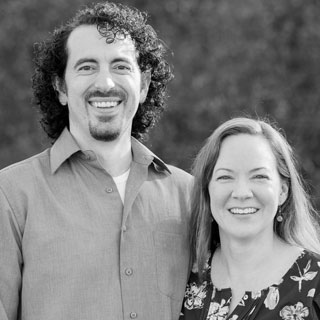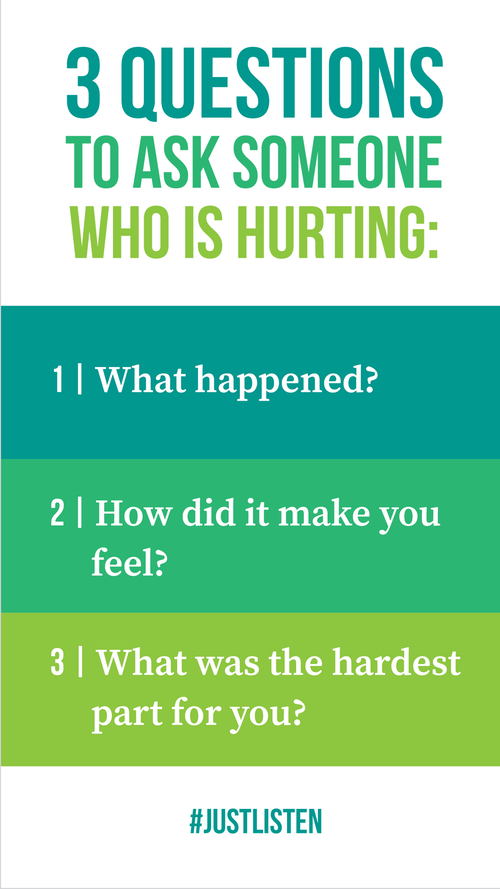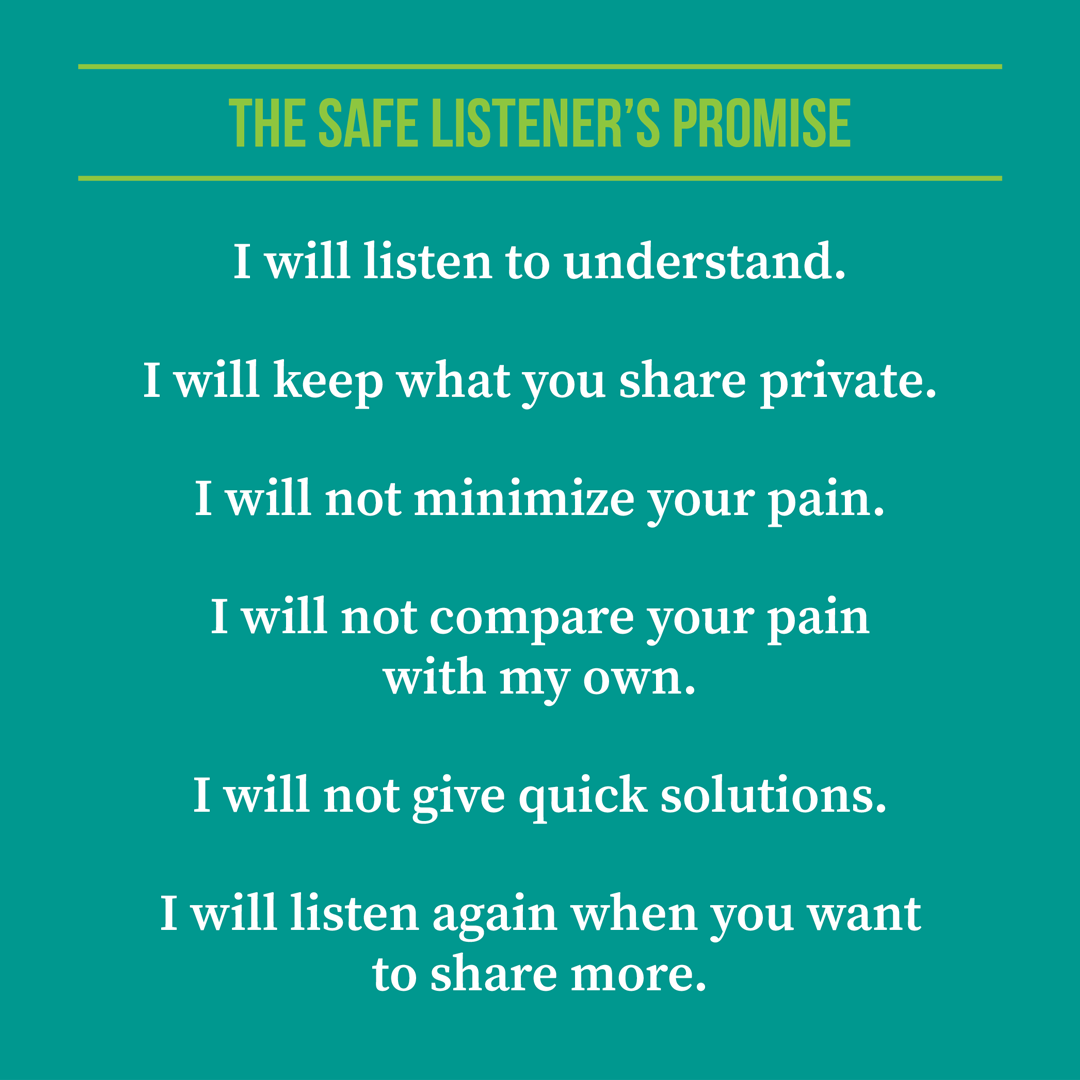
Caring for Wounded Hearts

The LORD is close to the brokenhearted; he rescues those whose spirits are crushed. -Psalm 34:18 (NLT)
Mental Health. Trauma-Informed. PTSD. Healing.
We’ve heard these words a lot lately – from diverse sectors of society across our country, and in relation to both Canadians and newcomers. As we think about what is going on around the world, here in this country, in our countries of origin, and the experiences we, and family members, bring with us when we settle here in Canada: How then, should we respond? As the church. As fellow neighbours. As friends reaching out. In our diaspora churches and ministries.
A panel discussion between a pastor, a psychologist, and the director of the Trauma Healing Institute discussing this question at the recent Church Mental Health Summit urged us to move forward in three directions: [i] (These three directions can apply also to our ministries within our diaspora churches and communities):
- Have compassion. Start the conversation by inviting people to share what they’ve experienced.
- Respond with appropriate resources to help heart wounds, and comfortable, safe spaces to talk.
- Get healthy! Identify our own heart wounds to be able to help others.
And, it has been shown that healing can happen faster in close faith communities![ii]
What are heart wounds?
Just as physical wounds need to be treated in a physical way, so heart wounds – with hidden symptoms that often go unrecognized – need to be treated in a heart (emotion-centric) way.
The ongoing effects of heart wounds – which come from experiencing traumatic events in the past – are many and complex, and as clinical counselor Joana Perez puts it, can include “poor sleep and appetite, the destruction of relationships, impaired functioning, hijacked emotions, shattered faith, mutilated hope, and the destruction of one’s sense of safety.”[iii] The spiritual effects of isolation from self, from others, and from God become a lived reality. All these are the body [and soul] remembering what the mind may try to block out: the imprint left by a devastating experience on one’s brain, mind, and body.[iv]
Spiritual disciplines such as prayer, fasting, practicing faith, trusting God, and the reading of Scripture – are wonderful for the fostering of our spiritual life and furthering our relationship with God; however, God has made our bodies in such a way that we need the right treatment to fit the injury. The LORD rebukes the prophets and priests of Israel in Jeremiah 6:13-15, saying “They offer only superficial help for the harm my people have suffered. They say, ‘Everything will be all right!’ But everything is not all right!”[v]
So, what exactly IS trauma?
Video: From Trauma Healing Institute on YouTube
And how can we begin to heal from our trauma?
Video: From Trauma Healing Institute on YouTube
Why do heart wounds need healing?
As a Christian clinician at the TraumaClinic International, Dr. Esly Carvalho describes four compelling reasons for treating heart wounds:[vi]
- It restores our ability to choose. Rather than remaining prisoners to our trauma responses, we can choose healthy patterns of behaviour. To say yes and no. To protect ourselves.
- It puts the trauma in the past where it belongs. It frees us to live chronologically in the present, without the repetitive presence of the effect of our trauma.
- It allows us to learn new things! (The brain on high alert is not efficient at learning! We may even have lost learning opportunities in our childhood if trauma was present.) To develop areas of ourselves that did not have a chance to “grow up.”
- It breaks the power of lies in our lives, and releases God’s truth to go deep into that area that suffered trauma.
Did you know?
The Bible is full of stories of heart wounds and the need for healing! Consider some of these stories:
- The “God who sees” Hagar through the abuse she suffered at the hands of her mistress, and the desperation she experiences in running away from the hidden effects of her trauma.
- Joseph’s betrayal by his brothers and the long years he spent in prison only to be met with more betrayal and imprisonment.
- Job’s visible trauma – the loss of everything he once had, even his personal health – in front of his friends and community.
- The bleeding woman in the gospels, who had suffered not only from a physical injury for twelve years, but also the ostracization both socially and spiritually from her community.
Then God comes to earth – in the person of Jesus Christ, who declares:
The Spirit of the Lord is on me, because he has anointed me to proclaim good news to the poor. He has sent me to proclaim freedom for the prisoners and recovery of sight for the blind, to set the oppressed free -Luke 4:18 (NIV)
Consider also:
This High Priest of ours understands our weaknesses, for he faced all of the same testings we do, yet he did not sin. -Hebrews 4:15 (NLT)
Think of all the hostility he endured from sinful people, then you won’t become weary and give up. -Hebrews 12:3 (NLT)

What resources are available for diaspora communities?
The Canadian Bible Society has been distributing materials and training facilitators among diaspora churches in the “Caring for the Wounded Heart: Bible-Based Trauma Healing” (See their website for some great testimonies!) This resource was first developed as a set of customized small group curriculum by members of SIL, counselors, and African pastors responding to needs seen by church leaders after the trauma of civil war in the Democratic Republic of the Congo (DRC).[vii] They were looking for a way to help people connect with God through what the Scriptures have to say about healing combined with sound mental health practices. Since then, 430,000 have participated in a healing group in 83 countries around the world since 2007, according to Rebecca Taguma, Executive Director of Trauma Healing Institute.[viii] It continues to be translated into more and more languages (170+ already), and even more translations are waiting to be pilot tested.
Story-based Trauma Healing: Finding Our Comfort in God & Settled Refugee Story Set
SIL, in collaboration with Trauma Healing Institute, has recently developed a Story-Based curriculum that appeals to an oral audience, with no need for the participants to read any materials!
In addition, there is both a curriculum for audiences from other faith backgrounds called Finding Our Comfort in God, and a separate Refugee Story Set that can be used in conjunction with either the Story-Based (oral) or Classic (book) curriculum. The Story-Based curriculum is divided into six or seven basic topics:
Story-Based Trauma Healing Topics
Our goal this year, in our partnership with SIL, is to help connect as many people ministering to and within the refugee communities of Canada to these Trauma Healing trainings as possible! These training opportunities will allow us to: • Become trauma-informed. • Be ready to share what the Bible has to say about heart wounds. • Be equipped with key listening and coaching questions. • Know how to be a safe listener and provide safe spaces.
How Can I Use This Resource?
This new Story-Based resource is written as a small group curriculum, with the idea of a group of people committed to a six or seven-week small healing group alongside two trained facilitators. The healing group is one that is committed to being a safe place to listen and be heard. It is an opportunity to overcome negative mental health struggles by hearing modern and Scripture stories as well as learn from sound mental health principles about how to heal from heart wounds. It is very participatory, designed around discussion and activity responses—each participant choosing when and if to share their story.
There is a required equipping for facilitators wanting to use the curriculum. However, by getting this training you will not only be able to facilitate healing groups, but will also be prepared to:
Use the Story-Based Trauma Healing Resource To:
3 Questions & The Safe Listener's Promise
*These two visuals are from Trauma Healing Institute and can be found here: Trauma Healing Basics Resources
When our community or friends are ready to use the full small-group curriculum, we can consider whether to use it within family groups, rather than non-family groupings, and carefully form groups of participants where trust can be fostered. We need to make sure we have buy-in from participants, that they understand it may bring up painful topics and feelings. (Caveat: The small-group curriculum as used in a healing group is not meant for those still in survival mode. This would include those within the first 6 months of arrival to Canada, and those who do not yet have the emotional space to talk about these things.)[ix]

Where can I experience a healing group for myself? Where can I get trained in Story-Based Trauma Healing?
Please complete the Caring for Wounded Hearts Response Form, and we will be sure to follow up with you to connect you to a group or equipping according to your preference!
In addition, with the collaboration of fellow Trauma Healing facilitators and trainers, we hope to offer 2-hour and 3 ½ hour ‘taster’ sessions of some of the lessons and/or stories and activities in this curriculum. A preference for this can also be indicated on the form, or you can write in the message field if you’d be interested in an on-line or in-person session with your ministry group.
You can fill out the form here: Caring for Wounded Hearts Response Form.

After ten years of involvement in ministry in Oaxaca, Mexico with Wycliffe & SIL, Deb & Ramón Padilla joined Outreach Canada in 2021 bringing their skills and experience to serve existing diaspora ministries in the Greater Toronto Area, and across Canada. Their vision is to collaborate with local ministries to support more effective use and access to Scriptures and other resources in the minority languages of homeland communities of immigrants. Through networking with front-line diaspora ministries and churches, Ramón seeks to understand the various contexts and help connect and foster collaboration of resources and ministries for Scripture Engagement to flourish among diaspora communities. Through research and connecting with other researchers, Deb seeks to communicate information about language groups in the diaspora to those whose work it will inspire as they minister to these communities.
[i] Dr. Philip G. Monroe, a licensed psychologist of Langberg, Monroe and Associates, Rebecca Taguma, Executive Director of Trauma Healing Institute and Rick McGregor, Founder/Executive Director at WeMentor360 & Founder/Lead Pastor of House of Restoration Church in “How the Church Can Bring Healing” at the Church Mental Health Summit, October 2023.
[ii] Taguma, Ibid.
[iii] Joana Perez, a Sexual Assault clinical counselor at Healing by Grace, and a Pastor’s wife at Iglesia Bautista La Gran Comision in Morristown, TN in “Spiritual Effects of Trauma” at the Church Mental Health Summit, October 2023.
[iv] Ibid. My addition in brackets.
[v] Dr. Kristi Gaultiere, Soul Shepherding in “Healthy Feelings Thriving Faith” at the Church Mental Health Summit, October 2023. She applies this verse as “God can’t heal what you won’t feel.”
[vi] Dr. Esly Carvalho, Ph.D., T.E.P. in “Why Should We Treat Trauma” at the Church Mental Health Summit, October 2023.
[vii] See https://traumahealinginstitute.org/blog/thi-history-and-changes for more of the development of this resource.
[viii] Rebecca Taguma, Executive Director of Trauma Healing Institute in “How the Church Can Bring Healing” at the Church Mental Health Summit, October 2023.
[ix] Credit due to colleagues at SIL International and Master Facilitators at the Trauma Healing Institute for their valued contributions of information and experience throughout this blog, directly and indirectly through the Story-based equipping and in answers to our questions.

